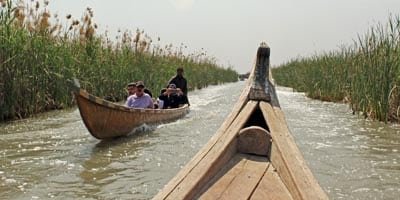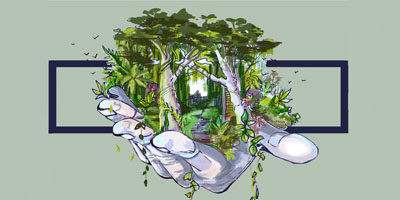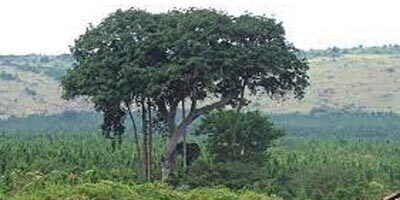editor
International environmental groups want the World Bank to “clean up its act” before it expands its role in climate finance
The World Bank is pushing for a leading role in climate finance, even though it has been unable to finalize its own energy strategy and continues to finance dirty energy projects, say the major environmental organizations Friends of the Earth (US), Sierra Club (US) and Oil Change International.
The groups want the World Bank to stop funding dirty energy projects, either directly or indirectly, and adopt “an energy strategy that promotes truly clean energy and energy access.”
They are concerned that the World Bank continues to push for a leadership role in climate finance through carbon offsetting schemes and investment funds, while its own energy strategy is still awaiting agreement. The Bank is engaged in carbon trading, the Climate Investment Funds, and the Green Climate Fund while continuing to disproportionately fund dirty energy projects within its core energy portfolio, with nearly half of energy lending – more than US$15 billion – going to fossil fuels in the last four years.
For example, just a year after the World Bank’s heavily-criticized US $3 billion loan for one of the world’s largest coal plants in South Africa, the institution is considering supporting a new coal plant in Kosovo.
The institution needs a new energy strategy that puts it on a new course that reflects the realities of the climate-constrained world in which we live, the groups say, but the institution has not been to agree on a new energy strategy, and its two-year process has reached a deadlock.
Canadian policy at the World Bank is the responsibility of the Finance Minister.
High unemployment and growing inequality fuel social unrest around the world
More than half of 106 countries surveyed by the ILO face a growing risk of social unrest and discontent, says a new World of Work Report published by the International Institute for Labour Studies (IILS)
World Bank adopts new policy of publishing details of sanctions against companies and individuals engaged in corruption or fraud
More than 530 firms and individuals have been sanctioned by the World Bank Group for fraud, corruption and collusion since the sanctions system was established in 1999.
One company in Canada has been permanently barred. Canadax Technologies Inc. of Verdun, Que., and its president, Pierre Savignac, were barred after being accused violating procurement rules. Probe International says the company forged letters of credit to win a contract to supply computers to Argentine schools.
The World Bank announces new environment strategy
The World Bank has announced its Environment Strategy for 2012-2022, which it says is “aimed at supporting countries to pursue sustainable development pathways that are green, inclusive, efficient, and affordable. The new Strategy responds to calls from governments and the private sector for new approaches to development in light of unprecedented environmental challenges and lays out a vision for ‘a green, clean and resilient world for all’.”
Zachary Hurwitz, of the California-based NGO International Rivers, says the strategy takes a business-as-usual approach to hydropower. “It makes no reference to the effects of large hydropower storage– especially multipurpose dams– on decreasing the climate resilience of downstream people and ecosystems.
“By damming the world’s rivers under the guise of so-called “clean development,” the World Bank may be condemning the world’s freshwater ecosystems and species, and the health of regions’ river systems and the functions they play in regulating the climate, to a bleak future.
“Hydropower and grid expansion may actually exacerbate climate change, and interrupt the ability of floodplains to transport nutrients that are important to maintaining carbon-absorbing soils and forests.
“Hydropower is the wrong answer in Africa, the world’s most water-stressed continent,” he says.
The strategy has some positive aspects but is weak on gender issues, says Sarah Little of the Washington NGO Gender Action. “In the strategy, they do a decent job of explaining how women are disproportionately affected by climate change, saying that ‘women and children are 14 times more likely than men to die during a disaster and are more likely to suffer from post-disaster violence. Disasters place an undue burden on women and girls.’ However, most strategy gender considerations are extremely general, the Bank lacks a gender safeguard policy and other Bank policies are notably weak on gender issues.
“Perhaps most concerning is that gender considerations only pop up twice in the strategy’s ‘priorities for action’ sections, and these two gender guidelines are too few and unhelpful.”
Without bank accounts, most of the world’s poor are less able to save or borrow to build a secure future
Three quarters of the world’s poor do not have a bank account, not only because of poverty, but also because of the cost, travel distance, and amount of paper work involved in opening one, says the World Bank.
The 2011 survey of about 150,000 people in 148 countries finds that more than 75% of adults earning less than $2 a day did not use a formal financial institution. The phenomenon of being “unbanked” is also linked to income inequality: the richest 20% of adults in developing countries are more than twice as likely to have a formal account as the poorest 20%.
Those without access to formal banking often have to rely on money lenders who often charge high fees. The “unbanked” are also less likely to start their own business or insure themselves against unexpected events.
Financial inclusion, or being “banked” can be transformative, as it allows poor people to build a more secure future. The ability to save and borrow allows them to build their assets, start a business, invest in education, establish a credit rating, and eventually own a home.
Source: World Bank
World Bank emphasis on profit in the water sector, without benefit to the poor, says new NGO report
“One tenth of the global disease burden could be eradicated by improving current water systems. Investment in this infrastructure is one of the most powerful means of disease prevention available to the public health community, not to mention a vehicle for lifting millions out of poverty,” says the Boston-based NGO Corporate Accountability International in its new report, “Shutting the Spigot on Private Water: The Case for the World Bank to Divest.”
“Water should be a core focus for an institution like the World Bank as a critical means for furthering its mission of poverty alleviation and sustainable development. Instead, the Bank has consistently prioritized the profits of the water industry over meaningful interventions with the potential for lasting and broad impact. For more than two decades the Bank has promoted corporate control of water as the primary solution to the world’s water woes, without substantiation or accountability for the results.”
The authors say privatization has neither benefited the world’s poorest people, nor proven economically viable. “The time has come for the Bank to divest from private water and redirect support to public and democratically accountable institutions.”


